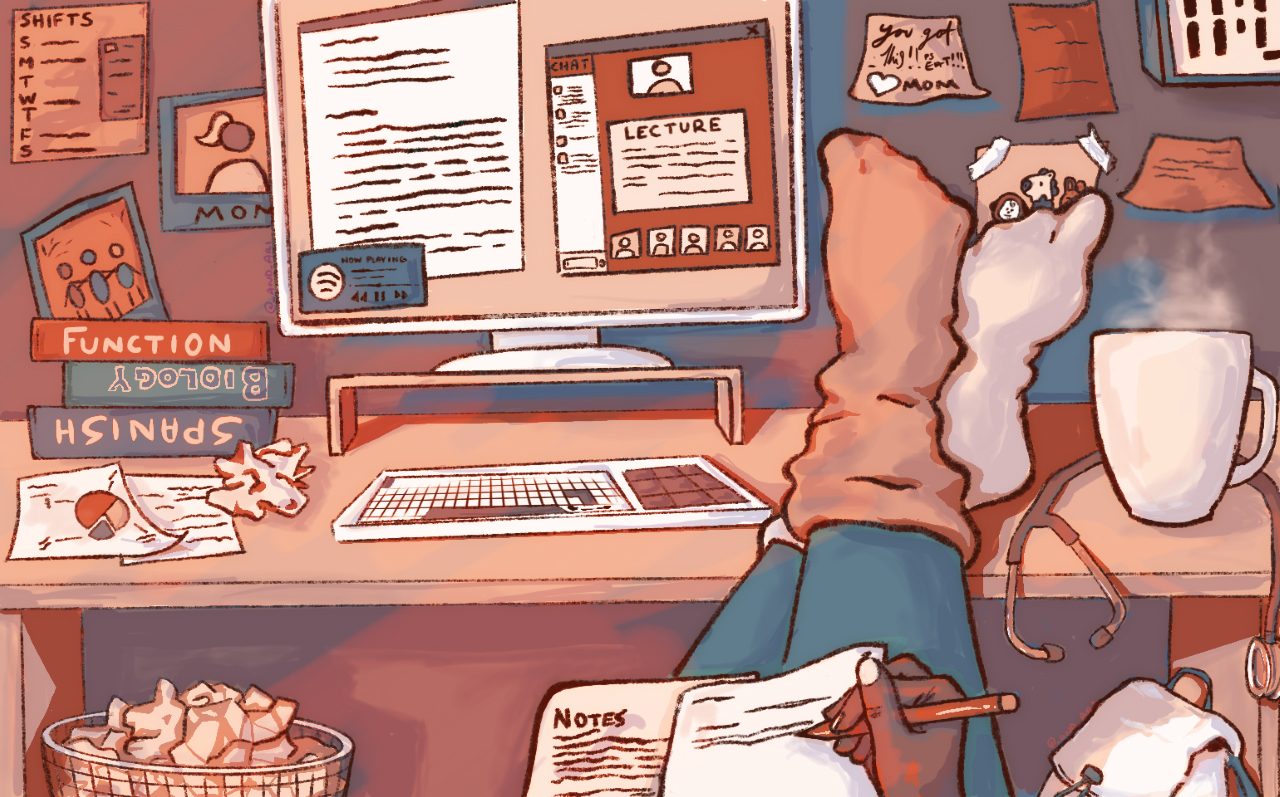
Ways to Cope with Stress
Stress. It’s something students experience all the time, especially in high school. As a grade 11 student, school, extracurricular activities, and thoughts about future careers have plagued my life, increasing stress levels. Moreover, the importance of grade 11 marks on admission into university has been giving me anxiety and stressing me out.
Stress affects the body and the mind in many different ways. It can manifest in physical symptoms such as headaches, muscle tension, fatigue and more.
A strong headache and tiredness can hinder your ability to study and prepare yourself for an upcoming event. It affects your memory by making it difficult to think and concentrate, decreasing your self-confidence, and hindering your ability to make rational decisions. When studying for a test, stress can make it difficult to remember information and concentrate on the material, increasing the amount of anxiety.
At times, stress can be positive by motivating you to do well; however, constantly feeling stressed – chronic stress – can be detrimental to the body. Overtime, stress can greatly increase the risk of heart disease, the leading killer of Canadians. Moreover, stress weakens your immune system. Have you noticed that right after a stressful event, such as a test or a presentation, you seem to catch a cold or cough? This is because the chance of catching a cold is increased when people are under severe stress and exposed to a virus. Stress is generally associated with anxiety and chronic stress can increase the risk of anxiety disorders as well as insomnia. Also, long-term stress is detrimental to mental health, as it increases the risk of anxiety and depression.
This year, I dramatically changed the way I dealt with stress using healthier and more positive methods. Previously, I did not deal with my stress at all and would let myself get overwhelmed. When stressed, I would ignore the mental and physical symptoms, or I would eat chocolate and candy to make myself feel better. The methods below will allow you to reach your goals and make the ill effects of stress disappear.
1. Physical Activity
When stressed, “fight or flight” hormones activate to protect you from bodily harm. However, in the twenty-first century, these hormones are usually not necessary since we aren’t being attacked by another human tribe or a vicious animal. Physical exercise metabolizes the stress hormones and returns your body to a relaxed state. Moreover, your body releases endorphins during physical activity, which leaves a positive feeling. When feeling overwhelmed and experiencing the effects of stress, go for a run or shoot some hoops. This technique always works! I usually go for a run outside before studying for a stressful exam. It puts me in a more relaxed mindset and allows me to study more effectively.
2. Relaxation Techniques
There are many relaxation methods that you can use to reduce the amount of stress. For example, use the method of self-hypnosis by focusing on a positive word, such as love, happy, or peace. This method distracts you from the stressor and relaxes your mind. Although this method takes a while to get used to, it is very effective and does not consume lots of time. Another very effective relation technique is the progressive muscle relaxation method, also known as PMR. In this technique, you repeatedly tense and relax all your muscles until you are completely relaxed. This method is useful to reduce panic and relax before or during a test or presentation, or even while studying.
3. Bite-sized Portions
It is important not to be overwhelmed by the big picture and focus on the little steps that lead you to success. For instance, separate an upcoming exam into individual topics or units. Estimate the amount of time required to review each unit and make a schedule. Chunking a large assignment into smaller steps reduces feelings of anxiety and enables you to manage your time more effectively. When I write essays, I separate the large anxiety-inducing task into smaller tasks: brainstorming ideas, creating an outline, and writing an introduction.
4. Take Breaks
No matter how stressed you are or how important an assignment is, it is impossible to constantly stay focused or study everything at once. It is important to balance your energy and focus with short breaks so that you do not burn yourself out and get tired too fast. When I study for tests, I study for 20-25 minutes and then listen to music for 10 minutes. This method ensures that I will not get fatigued rapidly. Although some people may say that this method reduces the time available for studying, I find that it allows me to study more effectively because the breaks allow me to concentrate better when studying.
5. Be Positive
Thinking positively leads to positive results. In fact, optimists generally experience better results because they create better circumstances in their lives due to their positive thinking. Being optimistic about your abilities and positive self-talk will definitely decrease stress and increase your chances of success. Instead of thinking, “I will never be able to finish studying all this and be prepared for the test,†say “if I study the major sections, I will be prepared enough and do well.â€
It is important that stressful life events don’t hinder your ability to succeed in your mental and physical health. Use these methods to combat the ill effects of stress so that you can achieve your full potential. After all, rocks do become diamonds under extreme stress!



